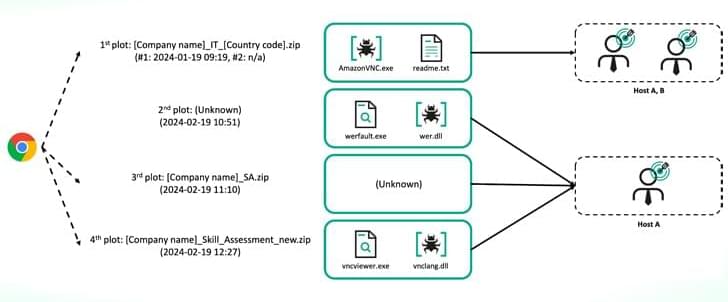LLMs can create 10,000 malware variants evading detection with 88% success, degrading ML classifiers and risking AI model security.



A data breach earlier this year at SRP Federal Credit Union has left nearly a quarter-million people exposed to possible identity theft and account fraud.
The ransomware group Nitrogen has claimed responsibility for extracting 650 gigabytes of sensitive customer data, according to reports filed recently with the state attorney general’s offices in Texas and Maine. The breach has been publicly reported throughout December by cybersecurity analysts, financial technology companies and national news media.
Screen captures of what seemed to be raw customer data from SRP were posted on social media through bogus accounts as early as Dec. 5.

This presents another challenge: convincing patients to allow the use of their data. Some 70% of Americans have expressed concerns about data privacy, with 56% admitting they find AI in healthcare “scary.”
It isn’t helped by the growing number of data breaches in the healthcare space, with 88 million patients having had their personal health information compromised in data breaches last year alone. Undoubtedly, if AI-powered healthcare is to maintain its trajectory, the sector will need to address these cybersecurity concerns.
AI is no longer a prospect but a reality today. It’s already being deployed in doctors’ offices and hospitals to analyze patient data, handle back-office tasks and assist surgeons. Anticipated to decrease administrative costs by up to 30%, free up hundreds of thousands of hours of physicians’ time and cut surgical waiting times—for the millions of Americans currently suffering in silence, whether due to affordability or accessibility, AI will offer a lifeline.


One hacker has managed to recover over $2,000,000 for a man who forgot the password to his crypto wallet by breaking into the physical device in a ‘high-stakes’ hacking attempt.
Even in its infancy cryptocurrency was worth a lot of money, and it’s surprisingly easy to lose it all with one simple mistake.
Horror stories of people accidentally throwing away hard drives with hundreds of millions of dollars worth of Bitcoin are more than enough to scare anyone away, and this particular video shows how close of a call it can be to recover otherwise simple information.



The BadBox Android malware botnet has grown to over 192,000 infected devices worldwide despite a recent sinkhole operation that attempted to disrupt the operation in Germany.
Researchers from BitSight warn that the malware appears to have expanded its targeting scope beyond no-name Chinese Android devices, now infecting more well-known and trusted brands like Yandex TVs and Hisense smartphones.


A threat actor tracked as MUT-1244 has stolen over 390,000 WordPress credentials in a large-scale, year-long campaign targeting other threat actors using a trojanized WordPress credentials checker.
Researchers at Datadog Security Labs, who spotted the attacks, say that SSH private keys and AWS access keys were also stolen from the compromised systems of hundreds of other victims, believed to include red teamers, penetration testers, security researchers, as well as malicious actors.
The victims were infected using the same second-stage payload pushed via dozens of trojanized GitHub repositories delivering malicious proof-of-concept (PoC) exploits that targeted known security flaws, along with a phishing campaign prompting targets to install a fake kernel upgrade camouflaged as a CPU microcode update.